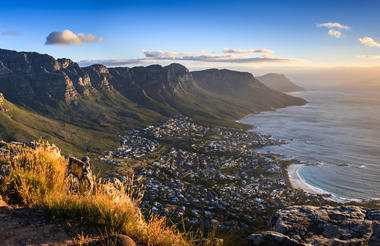Over the centuries, French, Dutch, English, Malay and African influences have moulded a city replete with natural beauty, an eclectic culinary smorgasbord, and a rich history. This is Cape Town, the Mother City, the oldest city in South Africa. And it’s where modern South Africa began. The seat of the South African parliament is here making Cape town the legislative capital of South Africa.
Cape Town has been called Table Bay, the Cape of Storms, the Cape of Good Hope, The Cape, and directors of the English East India Company described it as ‘the Gibraltar of India’. It finally became known as Cape Town in 1773. The Dutch East India Company had sent Jan van Riebeeck to build a fort, as well as The Company Garden - a vegetable garden and fruit orchard to supply ships on their way to the East and Australia with fresh food. A remnant of the garden still exists in the city today, including one of the original Saffron pear trees which is still bearing fruit. It’s the oldest cultivated fruit tree in the country.
The most prominent and iconic feature of Cape Town is Table Mountain. One of the New Seven Wonders of the world, and part of the Cape Floral Kingdom World Heritage Site, Table Mountain is one of the most popular visitor destinations in Cape Town. From the top, you can see the whole of the city laid out before you, as well the Pacific Ocean lapping at the foot of the African continent, and further along the coast is the Atlantic Ocean.
The mix of ethnic influences have, over the years, created a city with a unique, creative and cosmopolitan flavour unlike any other city in South Africa. All of which can be experienced in the museums, art galleries, spectacular seafood, the Victoria and Albert Waterfront, the Two Oceans Aquarium, the historic and important Robben Island. Wildlife such as great white sharks, penguins, seals, and iconic African wildlife in the nearby national parks. Cape Town also has one of the most colourful and photographed suburbs in all of South Africa – the Bo-Kaap. The narrow cobble streets and brightly painted homes on the slopes of Signal Hill form what was historically called the Malay Quarter. It was where free slaves and Muslims settled in Cape Town and the only place where they were allowed to freely practice their religion.
Combined with architecture that is both historically important and beautiful, vibrant nightlife, world-class beaches and the weather to go with them, as well as the city’s proximity to internationally renowned vineyards, and cheese farms makes Cape Town the city with it all, and more.






